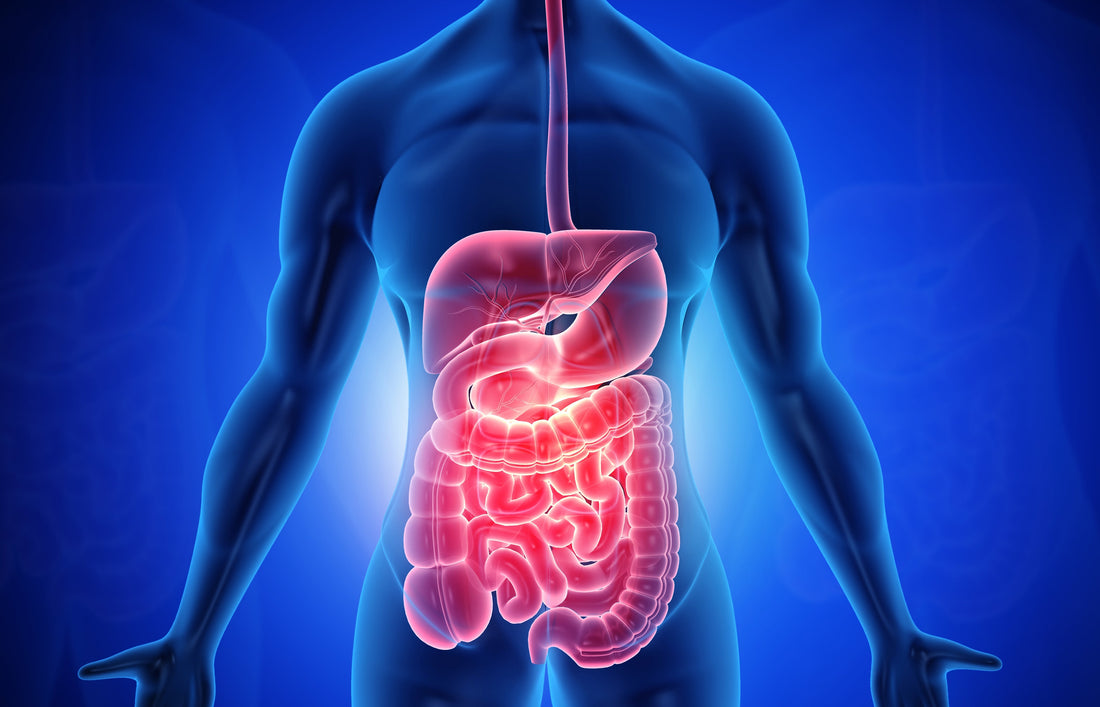The Importance of Your Gut Health
Inside your body consists of thousands of microorganisms but they mainly reside in the small and large intestines. These include viruses, bacteria, parasites and fungi. If you are healthy, these microorganisms cause no damage. Studies show that your gut health influences our circadian rhythm, metabolism and immune system.
Emerging research is showing how your gut health plays a major role in someones overall health. Most notably, the connection with the microbiome and gastrointestinal diseases such as Irritable bowel syndrome , celiac’s disease and Crohn’s disease. A healthy gut also helps fight against cardiovascular diseases, diabetes and obesity.
Gut microbiota has an important impact on how you digest foods, absorb nutrients, produce vitamins, regulate hormones and even recover from workouts. In fact some evidence suggests that poor gut health leads to a number of diseases. Even though your gut health or “microbiome” is shaped starting in the mothers womb, it can be changed overtime as we age. The main way we can change our microbiome is through diet. It is understood how important the food we ingest plays in our health but few people understand how much the foods affect our bodies. Read
A 2020 study looked at the effect of dietary fiber on healthy and unhealthy individuals as well as people with metabolic related disorders. All three groups were put on a diet high in fiber. The results indicated that all three groups had significant changes in the gut microbiota. Read
Gut health and weight loss
Dietary fiber’s role in weight loss is largely due to the result of producing short chain fatty acids(SCFA) The short chain fatty acid called Butyrate has been shown to reduce appetite and activate brown adipose tissue via the gut-brain neutral circuit. A major contributor to these results were a high-fat diet with butyrate. Read
By eating foods that improve your gut health, you can lose weight easier. Foods that improve your gut lining can decrease inflammation in your body, which contributes to weight gain, as well as suppress your appetite throughout the day. One study took 210 individuals with high amounts of body fat and had them take a probiotics supplement for 12 weeks, Results confirmed that those individuals had a decrease in body fat, visceral fat as well as waist line measurements. Read
Gut health and performance
Surprisingly, the health state of your gut actually has a big impact on your overall performance. A study by the International Society of Sports Nutrition, had subjects take protein with a probiotic called BC30 twice a day. Results showed that they increased their vertical jump power and peak power compared to subjects who did not take the probiotic.
There is also a link between the microbiome and muscle building. A daily intake of probiotics has been shown to improve nutrient absorption. Specifically the absorption of two amino acids, Leucine and Citrulline, positively impacts muscle growth by signaling a growth hormone called mTOR. Read
Gut health and the brain
However, some studies suggest that a gut-brain axis exists. In other words, the current state of our gut also influences our brain function. This works by the microbes in our gut communicating with our brain through the vagus nerve, short-chain fatty acids (SCFAs),cytokines and tryptophan. Read
Moreover, a clinical study showed that individuals that took a probiotic formulation of lactobacillus helveticus and bifidobacterium longum for 30 days had a decrease in stress and improved the volunteers mood. They concluded that probiotic intake has a decrease in anxiety and depression. Read
How to take care of your gut health
Prebiotic’s and probiotics are essential for a healthy gut. Prebiotic’s are fibers that help grow good bacteria while probiotics are live microorganisms found naturally in fermented foods. Prebiotic’s feed probiotics in our gut and turns it into SCFA called Butyrate.
The best way to protect your gut is to diversify your microbiome. This means consuming foods that are high in fiber, prebiotic’s and probiotic’s.
The best foods high in fiber
Broccoli, Brussel sprouts, beans, oats, quinoa, chia seeds, flax seeds, berries, avocados, whole grains, dried fruits, potatoes, nuts and whole grains.
Foods that are high in prebiotic fiber
Beans, oats, berries, Jerusalem artichokes, asparagus, garlic, leeks, onions.
Foods high in probiotic
Yogurt with live cultures, kefir, kombucha tea, sauerkraut, aged cheeses and apple cider vinegar.
I would suggest you include most of these foods daily, but it is also a good idea to take a probiotic supplement.
